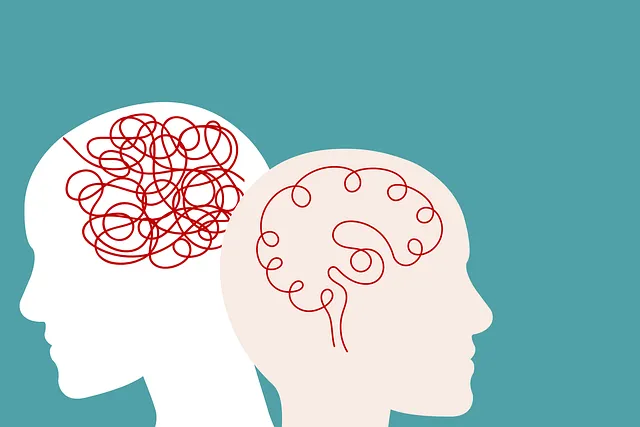The Kaiser Permanente mental health facility in Denver is a leader in innovative self-assessment tools for mental wellness, offering accessible online platforms that empower individuals to understand and improve their emotional well-being. Their tools incorporate practical Mind Over Matter principles, psychological evaluations, conflict resolution techniques, and emotional regulation strategies, fostering both personal growth and organizational wellness programs. By integrating technology with expert insights, these assessments break down stigma, enable early detection of mental health concerns, and drive positive change in diverse communities.
Mental wellness self-assessment tools play a crucial role in modern healthcare, enabling individuals to proactively manage their mental health. This article delves into the development of such tools, highlighting the significant contributions from organizations like Kaiser Permanente Mental Health Facility Denver. We explore key components of comprehensive frameworks and the integration of technology for accessible screening. Through rigorous testing, validation, and continuous improvement, these tools ensure quality and reliability, fostering better mental wellness outcomes, especially through the innovative practices employed by Kaiser Permanente.
- Understanding Mental Wellness Self-Assessment Tools: A Need in Modern Healthcare
- The Role of Kaiser Permanente Mental Health Facility Denver in Developing Effective Tools
- Key Components of a Comprehensive Self-Assessment Framework
- Integrating Technology for Accurate and Accessible Mental Health Screening
- Testing, Validation, and Continuous Improvement: Ensuring Quality and Reliability
Understanding Mental Wellness Self-Assessment Tools: A Need in Modern Healthcare

In today’s fast-paced world, mental wellness is a cornerstone of overall health and well-being. This realization has driven the need for accessible and effective self-assessment tools that cater to diverse populations, such as those offered by Kaiser Permanente mental health facility Denver. Mental Wellness Self-Assessment Tools (MWSATs) serve as valuable resources for individuals to gain insights into their emotional and psychological states, enabling early identification of potential issues. They empower people to take proactive measures toward maintaining or improving their mental health, much like Stress Management Workshops Organization facilitates through its communication strategies.
These tools are particularly crucial in addressing the growing mental health challenges faced by modern society. MWSATs can be tailored to assess various aspects of mental wellness, from stress levels and emotional resilience to coping mechanisms and overall life satisfaction. By incorporating Mind Over Matter Principles, these assessments offer practical insights that guide users toward healthier lifestyles and improved well-being. They serve as valuable stepping stones for individuals seeking support or looking to enhance their mental resilience in a comprehensive manner.
The Role of Kaiser Permanente Mental Health Facility Denver in Developing Effective Tools

The Kaiser Permanente mental health facility Denver plays a pivotal role in developing effective self-assessment tools for mental wellness. With its extensive expertise and resources, the facility has been at the forefront of researching and designing interventions that promote emotional well-being. By integrating insights from leading psychologists and mental health professionals, they’ve crafted tools tailored to address various aspects of mental health, including stress management, mood regulation, and crisis intervention guidance.
These innovative approaches not only cater to individuals seeking self-care routine development for better mental health but also offer practical solutions to organizations aiming to integrate emotional well-being promotion techniques into their wellness programs. The facility’s commitment to staying at the vanguard of mental health care ensures that their tools remain relevant and effective in addressing contemporary challenges, thereby fostering a healthier and more resilient community.
Key Components of a Comprehensive Self-Assessment Framework

A comprehensive self-assessment framework for mental wellness should incorporate several key components to ensure a holistic evaluation. Firstly, it must include a wide range of psychological and emotional factors that contribute to overall well-being. This can involve assessing symptoms of common mental health disorders, such as anxiety or depression, but also delving into areas like resilience, coping mechanisms, and emotional intelligence. The Kaiser Permanente mental health facility in Denver has pioneered approaches that integrate these aspects, offering a nuanced understanding of an individual’s mental wellness.
Additionally, the framework should incorporate tools to gauge conflict resolution techniques and emotional regulation strategies. Effective conflict management and the ability to regulate emotions are vital components of mental wellness, often overlooked yet significantly impacting daily functioning. By incorporating at-risk populations or individuals seeking personal growth, this assessment can empower them to identify areas for improvement and foster positive changes, mirroring successful practices employed by Denver’s Kaiser Permanente facility in their mental health services.
Integrating Technology for Accurate and Accessible Mental Health Screening

The integration of technology has revolutionized mental health screening, making assessments more accurate and accessible. Online platforms and mobile applications designed for self-assessment offer a convenient way for individuals to evaluate their mental wellness at their own pace. This shift is particularly significant in areas like the Denver metro region where resources, such as those available at Kaiser Permanente mental health facilities, can leverage digital tools to reach a broader audience.
By utilizing user-friendly interfaces and advanced algorithms, these tools can provide insights into various aspects of mental health, including mood management, crisis intervention guidance, and compassion cultivation practices. They offer a non-intrusive means of screening, ensuring individuals feel comfortable assessing their emotional well-being without the stigma often associated with traditional therapy or counseling sessions. This accessibility is crucial in promoting early identification of mental health concerns, enabling timely interventions, and fostering overall community mental wellness.
Testing, Validation, and Continuous Improvement: Ensuring Quality and Reliability

The development of self-assessment tools for mental wellness must undergo rigorous testing and validation processes to ensure their quality and reliability. At the Kaiser Permanente mental health facility in Denver, experts emphasize the importance of using validated measures that accurately reflect an individual’s emotional well-being. This involves administering the tools to a diverse range of individuals and comparing the results against established standards or expert opinions.
Continuous improvement is also integral to maintaining the effectiveness of these tools. Regular reviews and updates are necessary to incorporate new research findings, adapt to changing mental health paradigms, and address any cultural biases. For instance, integrating mindfulness meditation techniques into self-assessment protocols can enhance users’ ability to reflect on their emotional states while promoting overall wellness. Similarly, ensuring healthcare provider cultural competency training aligns with the latest evidence ensures that these professionals can effectively guide individuals through accurate self-assessments tailored to their unique needs and backgrounds.
The development of robust mental wellness self-assessment tools is a significant step towards addressing the growing demand for accessible and efficient mental healthcare. As highlighted by the expertise at Kaiser Permanente Mental Health Facility Denver, these tools play a pivotal role in early detection and management of mental health issues. By integrating technology and adhering to comprehensive assessment frameworks, we can enhance screening accuracy while ensuring patient privacy and accessibility. Continuous testing, validation, and improvement processes are essential to maintain the reliability and effectiveness of these tools, ultimately contributing to better mental wellness outcomes for individuals seeking support.






